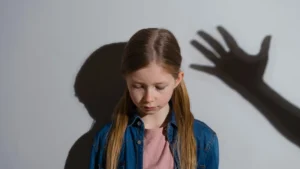Men We Reaped by Jesmyn Ward: Introduction
Men We Reaped by Jesmyn Ward stands as one of the most moving memoirs in modern American literature. This deeply personal book tells the heartbreaking story of five young Black men who died too soon, including the author’s beloved brother Joshua. Published in 2013, this award-winning memoir gives readers a raw and honest look at life in rural Mississippi, where poverty, racism, and violence create deadly traps for young men trying to find their way.
What is Men We Reaped About?
Men We Reaped is Jesmyn Ward’s memoir about losing five young Black men from her hometown of DeLisle, Mississippi, between 2000 and 2004. These deaths happened within just four years, taking away men who were between 19 and 32 years old. The book gets its powerful title from a quote by Harriet Tubman, who said about fallen Civil War soldiers: “when we came to get in the crops, it was dead men that we reaped.”
Ward wrote this book to understand why so many young men in her community died violent deaths. She wanted to show that these weren’t just random tragedies, but part of a bigger pattern of how racism, poverty, and lack of opportunities destroy lives in the American South. The memoir mixes Ward’s own life story with detailed accounts of each man’s death, creating a picture of a community under constant threat.
The book serves as both a tribute to the men she lost and a cry for justice. Ward refuses to let these deaths become just statistics. Instead, she brings each man back to life on the page, showing their hopes, dreams, struggles, and the forces that ultimately killed them.
Main Characters in Men We Reaped
Joshua Ward
Joshua is Jesmyn’s younger brother and the most important person in the book. He was kind, funny, and protective of his family. Joshua stayed in Mississippi while Jesmyn went to college, working at a casino to support himself. He was killed by a drunk white driver who received only a light sentence, showing how the justice system fails Black victims.
Roger Eric Daniels III (Rog)
Roger was Ward’s cousin and close friend. He was smart and had found success working in California, but he kept coming back to Mississippi because he loved his home despite its dangers. Roger struggled with cocaine addiction and died from a heart attack caused by mixing drugs. He represents the talented young men who get trapped by their circumstances.
Demond Cook
Demond was one of the most stable men in Ward’s circle. He had a loving family and seemed to be on the right path. However, when he tried to do the right thing by testifying against criminals in court, he was murdered in revenge. His death shows how violence follows those who try to fight against it.
Charles Joseph Martin (C.J.)
C.J. was Ward’s cousin and her sister’s boyfriend. He was athletic and charming but dropped out of high school and turned to drugs. He died in a car accident on dangerous railroad tracks that the city had failed to fix properly. His death reveals how neglect of infrastructure in poor Black neighborhoods costs lives.
Ronald Wayne Cook
Ronald was intelligent and sensitive, but he suffered from depression that nobody in the community knew how to handle. He killed himself at age 19, unable to cope with the hopelessness around him. His death highlights the mental health crisis in communities that don’t have resources to help struggling young people.
Jesmyn Ward
As the narrator and main character, Ward tells her own story of growing up poor and Black in Mississippi. She escaped through education, attending Stanford University, but she carries the guilt of surviving when so many others didn’t. Her journey from a sickly premature baby to an award-winning author provides hope in an otherwise tragic story.
Summary of Men We Reaped
Men We Reaped uses a unique structure that moves forward through Ward’s life while moving backward through the deaths of the five men. This creates a powerful effect where readers know each man will die before learning about their life, making every happy moment feel precious and temporary.
Ward’s Early Life and Family Background
The memoir begins with Ward’s difficult birth in 1977. She was born premature in California to teenage parents and wasn’t expected to survive. Her early years were marked by health problems, including blood tumors and other serious conditions that required multiple surgeries. This early brush with death sets the tone for a life surrounded by loss.
When Ward was young, her family moved back to Mississippi, where both her parents were from. They settled in DeLisle, a small town on the Gulf Coast where Ward’s extended family had deep roots. The town was founded by freed slaves after the Civil War, but by Ward’s childhood, it had become a place where dreams went to die.
Ward’s family lived in poverty, struggling to make ends meet. Her father worked various jobs but was often absent, both physically and emotionally. He had affairs with other women and eventually abandoned the family when Ward was still young. Her mother, a strong woman determined to give her children better lives, worked as a maid for white families while raising four children mostly on her own.
The family dynamics were complicated by traditional gender roles that placed different expectations on boys and girls. Ward watched her mother work herself to exhaustion while her father enjoyed freedoms that weren’t available to women. She also observed how Black men in her community were both feared by white society and often failed by their own families and communities.
The Deaths Begin: Understanding the Pattern
The memoir’s most powerful sections describe each of the five deaths in reverse chronological order. Ward begins with Roger’s death in 2004 and works backward to Joshua’s death in 2000. This structure helps readers understand how each death built upon the previous ones, creating a cycle of grief and trauma that poisoned the entire community.
Roger’s Story (2004): Roger died of a heart attack caused by mixing cocaine with other drugs. He had been Ward’s cousin and close friend, someone she looked up to for his intelligence and humor. Roger had found success working in California, where he felt free from the racial tensions of Mississippi. However, he kept returning home because he loved his family and community, even though the environment there was toxic for him.
Roger’s death represents the trap that many young Black men face: they can succeed when they leave their communities, but they feel obligated to return home where opportunities are limited and dangers are everywhere. His drug use wasn’t just recreation but a way to cope with the depression and hopelessness he felt in Mississippi. When he died, Ward realized that intelligence and talent weren’t enough to save someone from the systemic forces destroying her community.
Demond’s Story (2003): Demond was murdered in what appeared to be a revenge killing after he testified against drug dealers in court. Unlike some of the other men, Demond came from a stable family and seemed to have his life together. He had a steady girlfriend and was working to build a future for himself.
However, when Demond witnessed crimes in his neighborhood, he made the decision to testify in court against the perpetrators. This act of civic responsibility cost him his life. He was shot multiple times outside his home, becoming a victim of the same violence he had tried to stop. His death shows how the justice system fails communities where witnesses are afraid to come forward because they know they won’t be protected.
C.J.’s Story (2002): C.J. died in a car accident on railroad tracks that had been dangerous for years. The tracks were in a poor Black neighborhood, and despite numerous accidents, the city had never fixed the problem. C.J. was Ward’s cousin and her youngest sister’s boyfriend, a young man who was athletic and popular but who had dropped out of high school and turned to drugs.
The night he died, C.J. had been drinking and driving, which contributed to the accident. However, Ward points out that the dangerous tracks had killed other people too, and the city’s neglect of infrastructure in Black neighborhoods created deadly conditions. C.J.’s death represents how systemic racism operates through neglect – by simply failing to maintain safe conditions in Black communities, white authorities create situations where people die.
Ronald’s Story (2001): Ronald killed himself with a gun when he was just 19 years old. He was intelligent and sensitive, someone who understood the hopelessness of his situation perhaps too clearly. Ronald had watched his friends die and his community fall apart, and he couldn’t see any way out of the cycle of violence and poverty.
Mental health resources were virtually nonexistent in Ward’s community, and there was a strong stigma against showing emotional vulnerability, especially for young men. Ronald’s depression went untreated, and when he finally couldn’t bear the pain anymore, he ended his life. His death highlights how communities under constant stress develop high rates of mental illness but lack the resources to address these problems.
Joshua’s Story (2000): Joshua’s death serves as the emotional climax of the book, even though it happened first chronologically. Ward’s younger brother was killed by a white drunk driver who ran a red light and crashed into Joshua’s car. Joshua was just 19 years old, working at a local casino and trying to build a life for himself.
The driver who killed Joshua was convicted of leaving the scene of an accident but served only two years in prison. He never paid the restitution he was ordered to pay to Joshua’s family. This injustice burned in Ward’s heart and showed her how little value the legal system placed on Black lives. Joshua’s death was the beginning of the four-year period of loss that would devastate Ward’s community.
Ward’s Journey to Understanding
Throughout the memoir, Ward traces her own path from a sickly child to a successful writer. Her journey wasn’t easy – she struggled with depression, family dysfunction, and the constant stress of living in a violent community. However, she had advantages that the men who died didn’t have, including a mother who was determined to get her daughter an education.
Ward attended a private school through a scholarship program, where she was often the only Black student in her classes. This experience taught her to navigate between two worlds – the white world of privilege and opportunity, and the Black world of her family and community. She learned to code-switch, speaking and acting differently depending on which environment she was in.
At Stanford University, Ward experienced culture shock as she encountered wealth and privilege she had never imagined. She felt homesick for Mississippi despite knowing how dangerous it was, experiencing what she calls the “complex love” that many people feel for home places that are both nurturing and destructive.
Ward’s education gave her the tools to analyze what was happening in her community, but it also created distance between her and the people she grew up with. She felt guilty about her success when so many others were dying, wondering why she had been able to escape when they couldn’t.
The Role of Family and Community
One of the most powerful aspects of Men We Reaped is Ward’s portrayal of how families and communities respond to constant loss. She shows how her mother worked multiple jobs to keep the family together, how grandparents provided stability when parents couldn’t, and how neighbors supported each other through crisis after crisis.
Ward’s mother emerges as a heroic figure who sacrificed everything for her children’s future. She cleaned houses for white families, enduring subtle and not-so-subtle racism, in order to pay for Ward’s private school education. She worked despite arthritis and other health problems, understanding that education was the only way to break the cycle of poverty.
The community’s response to each death reveals both strength and dysfunction. Families came together for funerals, providing food and emotional support during times of grief. However, the constant cycle of death also created a sense of fatalism and despair. People began to expect young men to die, treating their deaths as inevitable rather than preventable tragedies.
Ward also explores how gender shaped these experiences differently for men and women. Women in her community were expected to be strong and endure suffering, while men were expected to be tough and hide their emotions. These gender roles contributed to the problems that led to the deaths – men couldn’t seek help for depression or addiction because it would be seen as weakness.
Systemic Racism and Economic Inequality
Throughout the memoir, Ward carefully documents how racism operates in her community, both through overt discrimination and through more subtle forms of systemic oppression. She shows how schools failed Black students, how the justice system treated Black victims and perpetrators differently from whites, and how economic policies created conditions of desperate poverty.
The economic situation in DeLisle was particularly challenging because traditional industries like fishing and farming had declined, leaving mostly low-wage service jobs at casinos and hotels. Young men who might have found stable work in previous generations were left with few options besides the military, minimum-wage jobs, or illegal activities.
Ward connects these local conditions to the broader history of American racism, showing how slavery, Jim Crow laws, and modern forms of discrimination created the conditions that killed the men she loved. She doesn’t present racism as just individual prejudice but as a system that operates through institutions like schools, courts, and economic structures.
The memoir also explores how internalized racism affects communities. Ward shows how some Black people had absorbed negative stereotypes about their own community, leading to self-hatred and destructive behaviors. Breaking free from these internalized beliefs required not just individual effort but community-wide healing.
The Power of Storytelling and Memory
Men We Reaped demonstrates Ward’s belief in the power of storytelling to create change and preserve memory. By writing about the men who died, she ensures that their lives won’t be forgotten or reduced to statistics. She gives each man dignity and complexity, showing their struggles without excusing their mistakes.
Ward also uses storytelling to process her own trauma and grief. Writing the memoir was painful but necessary, helping her understand the forces that shaped her life and the lives of the people she loved. The act of writing became a form of resistance against the systems that wanted to erase these men’s existence.
The memoir serves as a form of testimony, bearing witness to injustices that might otherwise go unnoticed. Ward’s education and writing skills give her a platform to speak for people who don’t have access to mainstream media or political power. Her success as a writer validates the experiences of her community and proves that their stories matter.
Major Themes in Men We Reaped
Death and Grief
The most obvious theme in Men We Reaped is death and how communities cope with constant loss. Ward shows how repeated deaths create cycles of trauma that affect everyone in the community. She explores different types of grief – anticipatory grief (knowing someone will probably die young), survivor’s guilt (wondering why she lived when others didn’t), and complicated grief (when deaths are violent or unjust).
Systemic Racism and Injustice
Ward carefully documents how racism operates in both obvious and subtle ways. She shows how the justice system fails Black victims, how schools don’t serve Black students, and how economic policies create conditions of poverty that make death more likely. The memoir demonstrates that individual choices happen within systems that limit options and create deadly conditions.
Poverty and Class
Economic inequality runs through every story in the memoir. Ward shows how poverty affects everything from the quality of schools to the safety of infrastructure to access to mental health care. She also explores how class mobility creates complicated feelings for those who escape poverty while their loved ones remain trapped.
Gender and Masculinity
The book examines how gender roles affect both men and women in Ward’s community. Men are expected to be tough and hide their emotions, which prevents them from seeking help for problems like depression or addiction. Women are expected to be strong and endure suffering, often sacrificing their own needs for their families.
Family and Community
Despite all the trauma and loss, Men We Reaped also celebrates the strength of family and community bonds. Ward shows how people support each other through crisis, how traditions are passed down through generations, and how love persists even in the most difficult circumstances.
Education and Opportunity
Ward’s own educational journey provides hope in an otherwise tragic story. Her memoir shows how education can provide a path out of poverty, but it also reveals how few opportunities are available to most young people in communities like hers.
Background
About the Author
Jesmyn Ward was born in 1977 in Oakland, California, but grew up in DeLisle, Mississippi. She attended Stanford University on scholarship and later received her Master of Fine Arts degree from the University of Michigan. Ward has won the National Book Award twice – once for her novel Salvage the Bones in 2011 and again for Sing, Unburied, Sing in 2017. She is the first woman and first African American to win the National Book Award for Fiction twice.
Ward currently works as a professor of English at Tulane University, where she holds the Andrew W. Mellon Professorship in the Humanities. She received a MacArthur Fellowship in 2017 and was named to Time Magazine’s list of 100 most influential people in 2018. All of her work focuses on the experiences of poor Black communities in the American South.
Historical Context
Men We Reaped is set against the backdrop of post-Civil Rights era Mississippi, where legal segregation had ended but many forms of discrimination continued. The memoir shows how economic changes in the late 20th century – including the decline of traditional industries and the rise of casino gambling – affected rural Black communities.
The book also reflects broader trends in American society, including the war on drugs, mass incarceration, and growing economic inequality. Ward’s community was particularly affected by these trends because of its history of poverty and discrimination.
Literary Context
Men We Reaped fits into a tradition of African American memoir writing that includes works like Maya Angelou’s I Know Why the Caged Bird Sings and Richard Wright’s Black Boy. However, Ward’s memoir is unique in its focus on collective rather than individual experience – she tells not just her own story but the story of her entire community.
The book also connects to contemporary discussions about racial justice, police violence, and economic inequality. Ward’s detailed documentation of how systemic racism operates makes her memoir an important contribution to these ongoing conversations.
Frequently Asked Questions
What does the title “Men We Reaped” mean?
The title comes from a quote by Harriet Tubman about the deaths of Black soldiers in the Civil War. Tubman said that when they came to harvest crops, “it was dead men that we reaped.” Ward uses this metaphor to show how her community keeps losing young men to violence and early death, harvesting grief instead of hope.
Is Men We Reaped based on a true story?
Yes, Men We Reaped is a memoir, which means it tells true stories from Ward’s own life. All five men who died were real people that Ward knew and loved. She changed some names and details to protect privacy, but the events described in the book really happened.
What happened to the drunk driver who killed Joshua?
The white drunk driver who killed Ward’s brother Joshua was convicted of leaving the scene of an accident but served only two years in prison. He was ordered to pay restitution to the family but never did. This light sentence for taking a young Black man’s life shows how the justice system undervalues Black lives.
Why did Ward write this book?
Ward wrote Men We Reaped to process her own grief and to honor the memory of the men who died. She also wanted to show how systemic racism and poverty create conditions that make early death more likely for young Black men. The book serves as both a personal tribute and a call for social justice.
How does the book’s structure work?
The memoir uses two timelines: Ward’s life story moves forward from her birth to adulthood, while the stories of the five deaths move backward from 2004 to 2000. This creates a powerful effect where readers know each man will die before learning about his life, making every moment feel precious and temporary.
What awards has Men We Reaped won?
Men We Reaped won the Chicago Tribune Heartland Prize for Nonfiction in 2014. It was also a finalist for the National Book Critics Circle Award for Autobiography and the Hurston/Wright Legacy Award for Nonfiction. The book has been widely praised by critics and has been selected for many college reading programs.
Is Men We Reaped appropriate for young readers?
The memoir deals with mature themes including death, drug use, suicide, and racism. While it’s an important book for understanding American social issues, it may be too intense for younger readers. The book is typically assigned in high school and college courses.
How accurate is Ward’s portrayal of Mississippi?
Ward’s portrayal of rural Mississippi is based on her lived experience and is generally considered accurate by critics and readers familiar with the region. However, like any memoir, it represents one person’s perspective on events. Ward acknowledges that others might remember things differently or have different interpretations of what happened.
Conclusion
Men We Reaped by Jesmyn Ward stands as a masterpiece of American memoir writing that forces readers to confront uncomfortable truths about racism, poverty, and injustice in modern America. Through her powerful storytelling and unflinching honesty, Ward transforms personal tragedy into universal understanding, showing how individual deaths reflect broader social problems that affect millions of people.
The memoir succeeds because Ward refuses to simplify complex issues or offer easy answers. She shows how systemic racism operates through institutions and policies, but she also acknowledges the role of personal choices and individual responsibility. She celebrates the strength of her community while honestly depicting its problems. Most importantly, she honors the memory of the men who died by showing them as full human beings rather than statistics or symbols.
Men We Reaped is essential reading for anyone who wants to understand how inequality operates in American society and how it affects real families and communities. Ward’s beautiful prose and careful analysis make difficult topics accessible without diminishing their complexity or importance. The book serves as both a work of literature and a call to action, challenging readers to work for a more just society where young men like Joshua, Ronald, C.J., Demond, and Roger can live full lives instead of dying too soon.
Ward’s memoir proves that literature has the power to create empathy and understanding across racial and class lines. By sharing her story with honesty and grace, she builds bridges between different communities and experiences. Men We Reaped reminds us that behind every statistic about violence or poverty are real people with hopes, dreams, and families who love them. In a time when social divisions seem to be growing wider, Ward’s memoir offers a model for how storytelling can create connection and inspire change.




